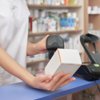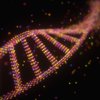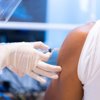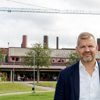Fritextsökning
Artiklar per år
Innehållstyper
-

Innovative start-up helps doctors, scientists and industry balance coagulation risks
For many doctors caring for seriously ill patients, for example, in stroke units and cancer wards, maintaining the life-saving balance between bleeding and thrombosis is an ongoing challenge. In the late 1980s, scientists at Maastricht University in the Netherlands developed an innovative method, the thrombin generation assay (TGA), which provides a complete overview of a physiological process crucial for maintaining normal haemostasis.
-

Samuel Lagercrantz: “Companies that do this successfully will take the lead”
The development of new medicines and medical technologies should not focus too narrowly on prolonging life. It is equally important to develop treatments that relieve pain or eliminate painful symptoms, writes Samuel Lagercrantz in an editorial.
-

Carl Borrebaeck – professor and serial entrepreneur with a taste for speed
Award-winning cancer researcher, the founder of many listed companies, and constantly in the academic and commercial spotlight for decades. However, Carl Borrebaeck, Professor of Immunotechnology at Lund, is not yet satisfied. “We have a new, potentially super exciting project in the pipeline,” he says.
-

Ancient DNA provides new insights – “The immune system lost its job”
Ancient bone remains from our ancestors have provided new insights into the prevalence of multiple sclerosis. By looking back in time, researchers can provide a possible explanation for why the disease is more prevalent in northern Europe.
-

Uppgift: Sanofi planerar avknoppning av sina receptfria läkemedel
Den franska läkemedelsjätten Sanofi uppges ha bett ett antal banker att pitcha för att delta i att hantera företagets planerade avknoppning av sin OTC-verksamhet, enligt källor till Bloomberg News.
-

“Life science is important on a personal level”
From the High Coast to the Government Offices. Jeanette Edblad is a native of Ångermanland, and since September last year, she has been Head and Coordinator of the Government’s Life Science Office.
-

Klartecken till nytt anmält organ för MDR – ”Vi är redo”
Sverige har fått en ny aktör med rätt att certifiera enligt det nya europeiska regelverket MDR.
-

“What is important is to create an overview and understanding from different perspectives”
Scientist Jochen Schwenk analyses blood proteins using proteomics to improve our understanding of disease and health. This year, he is moderating the Lab & Diagnostics of the Future event.
-

Failed to read the fine print – lost his life’s work
A celebrated CEO and co-founder of a pioneering lab company one moment – the next, fired, kicked out and written out of the company’s history. This is the story of a Swedish entrepreneur who was going to raise US venture capital to strengthen his company but lost his life’s work instead.
-

A new special edition and a new event in Copenhagen – This is happening at Life Science Sweden 2024
The new year brings new features for the readers of Life Science Sweden.
-

Ingrid Lönnstedt: What does the p-value mean?
The smaller the better, and preferably smaller than 0.05. A p-value smaller than 5% means that the treatment effect is statistically significant at 5% significance level. But what does that mean? Read Ingrid Lönnstedt´s column to learn more.
-

Samuel Lagercrantz: We are currently seeing medical breakthroughs in these areas
Samuel Lagercrantz, Editor in Chief of Life Science Sweden, lists three medical fields in which we are currently seeing major breakthroughs and two fields in which we can see some long-awaited positive developments.
-

Business Sweden: “Companies have a lot to offer in data-driven precision medicine”
Data-driven precision medicine can potentially solve major healthcare problems, states Business Sweden in a new report on the subject.
-

Study: Vaccination linked to lower risk of post-COVID
The risk of developing post-COVID after a COVID infection was reduced in vaccinated people, according to a new study from the University of Gothenburg.
-

The Swedish innovation model: “There is a paradox”
It is often said that Sweden is strong when it comes to innovation, but how well are we turning that innovation into actual medicines?
-

The Swedish Academy of Sciences: “We have too many researchers”
Sweden does not need more researchers, but it does need better ones. According to the Royal Swedish Academy of Sciences, funding should be distributed to favour excellence.
-

The physician at the tech giant: “Observations in the emergency room made my mind up”
When Nasim Farrokhnia was in third grade at school in Tehran, the capital of Iran, her father gave her a book about Marie Curie, which soon became her favourite book. Perhaps her interest in science was born there and then, as science and new technology have since been a constant feature of her working life. Today, she is a Healthcare Manager in Microsoft’s Western Europe team.
-

The first drugs to slow down Alzheimer’s – but what does it mean for patients?
New treatments for early Alzheimer’s are bringing hope to thousands of patients and their families. The question is, who will get the treatment, how will the right patients be found in time, and will the healthcare system’s resources be sufficient? Life Science Sweden has spoken to Swedish researchers in Alzheimer’s who voice cautious hope but also see further challenges.
-

Astra Zeneca’s Sweden CEO: “We have great faith in our portfolio”
It all started with a summer job as an operator at Astra’s chemical factory in Snäckviken, just outside Södertälje. More than three decades and countless different assignments later, Per Alfredsson, born and raised in Södertälje, is CEO of Astra Zeneca Sweden, which employs 7800 people in Södertälje, Stockholm and Gothenburg. “It was a very special feeling to be in charge of the entire organisation,” he says in an interview about his career and potential future blockbusters.
-

Astra Zenecas Sverige-vd: ”Vi tror superstarkt på vår portfölj”
Det började med sommarjobb som operatör på Astras kemifabrik i Snäckviken. Över tre decennier och otaliga olika uppdrag senare är Södertäljesonen Per Alfredsson vd för hela Astra Zeneca Sverige, som samlar 7 800 anställda i Södertälje, Stockholm och Göteborg. ”Det var en väldigt speciell känsla att bli chef över hela verksamheten”, säger han i en intervju där han berättar om sin karriär – och om kommande potentiella blockbusters.
-

Samuel Lagercrantz: A special kind of hellishness afflicts post-COVID patients
In addition to the disease itself those suffering from post-COVID have to deal with people who try to label them as hypochondriacs, writes Samuel Lagercrantz in an editorial.
-

Here are the pharmaceutical companies best prepared for AI
How well prepared are pharmaceutical companies in the field of artificial intelligence? That is what a new analysis has tried to evaluate.
-

Larm: Varningsnätverk för globala sjukdomsutbrott kan kollapsa
Varningssystemet för sjukdomsutbrott, Pro Med, som bland annat var en av de första att varna världen om covid-19 tycks vara nära kollaps.
-

Lucy Robertshaw: Artificial intelligence – is this really going to transform a patient’s life?
In a column Lucy Robertshaw reflects on how AI and new regulations will affect healthcare, innovation and the lives of future patients.